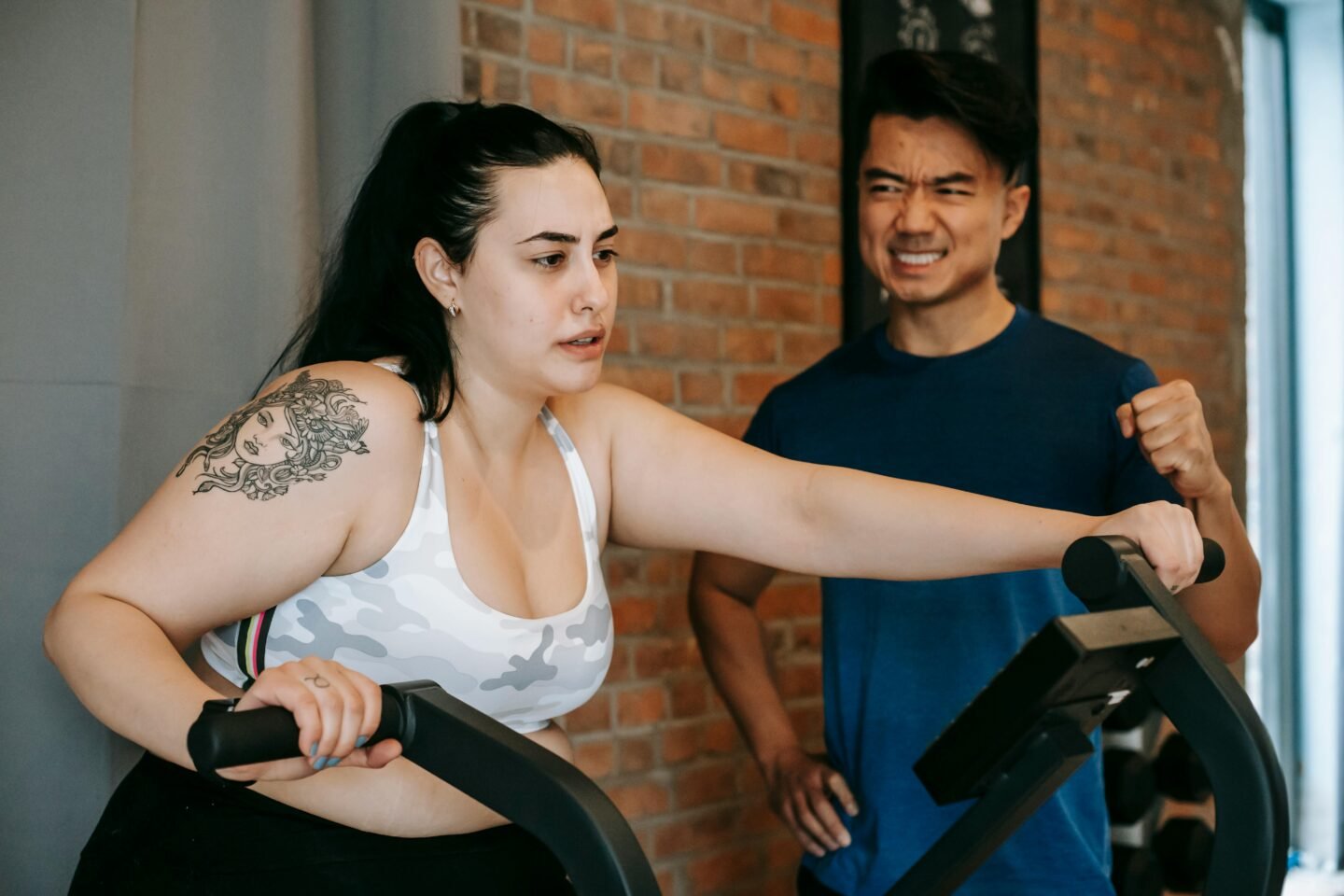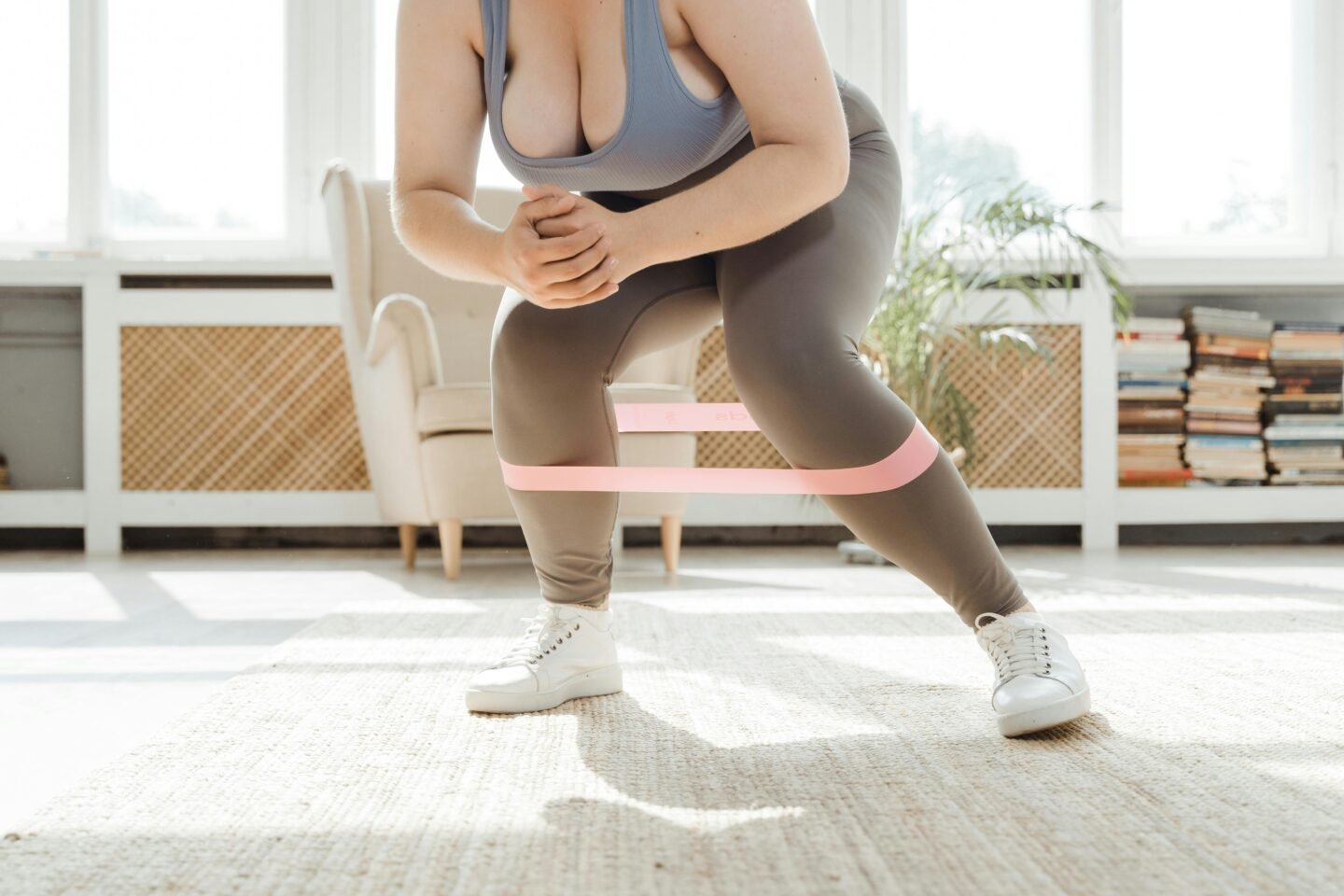Hey sweet friend,
I see you there, staring at that dusty pair of sneakers in your closet. Maybe you used to be a runner, or you loved those Zumba classes before life got crazy. Perhaps you’re remembering when you actually had energy for workouts, before kids and careers and all the beautiful chaos of real life took over.
Can I tell you something? You’re not broken. You’re not lazy. And you’re definitely not too far gone to start again.
I’ve been where you are – standing in my bedroom at 6 AM, trying to remember what it felt like to actually want to exercise. After years of yo-yo fitness routines that lasted about as long as my motivation (which wasn’t very long), I finally figured out how to build sustainable movement into my life. Not perfect, not Instagram-worthy, but real and lasting.
Let’s talk about getting back to moving your body in ways that honor where you are right now, not where you think you should be.
First, Let’s Talk About Why You Stopped
Before we jump into the how-to, I think it’s important to acknowledge what got you here. Maybe it was pregnancy and the postpartum fog. Maybe a season of caring for aging parents. Perhaps work stress, kids’ schedules, or just the general overwhelm of being a woman in her 40s trying to keep all the plates spinning.
Whatever it was, it was valid. You made the choices you needed to make with the energy and time you had. There’s no shame in that.
But now you’re feeling the effects – maybe you’re tired all the time, your clothes don’t fit quite right, or you just miss feeling strong in your own body. Those feelings are valid too.
The Mindset Shift That Changes Everything
Here’s the truth that took me way too long to learn: sustainable exercise isn’t about punishment or “getting your body back.” It’s about stewardship and self-care.
God gave you this one body to carry you through this one life He’s planned for you. Moving it regularly isn’t vanity – it’s wisdom. When you’re stronger and have more energy, you can love your family better, serve more effectively, and handle stress with more grace.
This isn’t about looking like a fitness influencer. This is about being able to chase your grandkids, carry groceries without your back aching, and feeling confident in your own skin.

Starting Where You Actually Are (Not Where You Think You Should Be)
Research shows that one of the biggest mistakes people make when returning to exercise is doing too much too soon. Your brain remembers being able to run three miles, but your body needs time to rebuild that capacity.
The 10% Rule is your friend here. Whatever you think you can do, start with about 10% of that. I know it sounds ridiculously small, but hear me out. If you think you could walk for 30 minutes, start with 3 minutes. If you used to love hour-long workout classes, start with 6 minutes of movement at home.
This isn’t forever – it’s just the foundation you’re building on.
The Magic of Micro-Workouts
One of the biggest lies we tell ourselves is that exercise only counts if it’s a full hour at the gym. Sister, that’s just not true. Research consistently shows that even 10-15 minutes of movement can improve mood, energy, and overall health.
Start with 10 minutes, three times a week. That’s it. That’s less time than you spend scrolling Instagram most mornings.
Some 10-minute options:
- Walk around your neighborhood
- Follow a YouTube pilates video
- Dance to three songs in your kitchen
- Do bodyweight exercises during TV commercials
- Take the stairs instead of the elevator, plus park farther away when running errands
The goal isn’t to exhaust yourself – it’s to prove to your brain that you’re someone who moves regularly.
Finding Movement You Actually Enjoy
This might be revolutionary, but you don’t have to do exercise you hate. I spent years forcing myself through workouts I despised because I thought suffering was somehow more effective. It wasn’t.
Ask yourself: What kind of movement used to bring you joy? What sounds fun, not torturous?
Maybe it’s dancing, hiking, swimming, or playing tennis. Maybe it’s gardening or playing actively with your kids. Movement doesn’t have to happen in a gym to count.
For the chronically busy mom: Look for activities that serve double duty. Walk while talking to your sister on the phone. Do squats while your coffee brews. Park farther away and walk briskly to appointments. Turn cleaning house into a mini workout.
Building the Habit Before Building Intensity
Here’s what fitness culture gets wrong: they focus on the workout instead of the habit. But habits are what create lasting change.
The 2-Minute Rule: Commit to just 2 minutes of movement every day. Seriously. Two minutes. The goal isn’t the workout – it’s proving to yourself that you’re reliable. Once 2 minutes feels automatic (usually about 2-3 weeks), then you can gradually increase.
Consistency trumps intensity every single time. Ten minutes three times a week for a year will transform your life more than three intense weeks followed by months of nothing.

Working with Your Real Life (Not Against It)
Your exercise routine needs to fit your actual life, not some fantasy version where you have unlimited time and energy.
If you’re a morning person: Set out your clothes the night before and start with just 10 minutes before everyone else wakes up.
If mornings are chaos: Find pockets during the day. Walk during lunch breaks, do bodyweight exercises while dinner cooks, or use naptime for movement.
If evenings work better: Have a plan that doesn’t require leaving the house after everyone’s settled.
The key is picking ONE time and protecting it fiercely. Don’t try to be flexible at first – routine creates automaticity.
The Foundation Four: Strength, Cardio, Flexibility, and Fun
A well-rounded routine doesn’t have to be complicated, but it should include these four elements:
Strength: Your bones and muscles need resistance work, especially as we age. This doesn’t mean lifting heavy weights – bodyweight exercises, resistance bands, or light dumbbells work beautifully.
Cardio: Anything that gets your heart rate up counts. Walking briskly, dancing, swimming, or playing tag with your kids all qualify.
Flexibility: Stretching or yoga helps prevent injury and just feels good. Even 5 minutes before bed can make a difference.
Fun: This is non-negotiable. If it’s not at least a little enjoyable, you won’t stick with it long-term.
Dealing with the Obstacles (Because There Will Be Obstacles)
“I’m too tired.” This is the big one, isn’t it? Here’s the paradox: exercise actually gives you more energy, but you need energy to start exercising. Start with gentle movement when you’re tired – often a 10-minute walk will leave you feeling more energized than when you started.
“I don’t have time.” I hear this, and I know it feels true. But we find time for what we prioritize. Even busy moms can find 10 minutes. Maybe it means getting up 10 minutes earlier or using time you’d normally spend on your phone.
“I’m out of shape and embarrassed.” Start at home with YouTube videos or walking in your neighborhood. You don’t need to join a gym or wear special clothes. You just need to move.
“My family needs me.” They need you healthy and energized even more than they need you available every single minute. Teaching your children that taking care of yourself is important is actually a gift to them.
The Power of Grace and Flexibility
Here’s something I wish someone had told me earlier: you’re going to miss days. You’re going to have weeks where life explodes and exercise falls off the priority list. That doesn’t mean you’ve failed or need to start over.
The comeback is always stronger than the setback. When you miss a few days (or weeks), just gently return to your routine. Don’t punish yourself with extra-intense workouts. Just start again where you left off.
Tracking Progress Beyond the Scale
Please, sweet friend, don’t let the scale be your only measure of success. Our bodies are complex, and weight fluctuates for a million reasons that have nothing to do with your efforts.
Better measures of progress:
- How do you feel when you wake up?
- Can you climb stairs without getting winded?
- Are you sleeping better?
- Do you have more patience with your family?
- Are your clothes fitting better (regardless of weight)?
- Do you feel stronger and more confident?
These changes often happen long before the scale moves, and they’re infinitely more important.
Making It Social (Without the Pressure)
Having support makes everything easier, but it needs to be the right kind of support.
Find an accountability partner who’s also starting slowly and sustainably. Text each other after workouts, not to compare or compete, but to celebrate showing up.
Join online communities focused on sustainable fitness rather than extreme transformations. The encouragement of other women on similar journeys can be incredibly motivating.
Include your family when possible. Let your kids see you prioritizing movement. They might even join you sometimes.
The Long Game Perspective
This isn’t about getting beach-ready for summer or fitting into your jeans from five years ago. This is about being the healthiest version of yourself for all the years God has planned for you.
Research shows that people who exercise regularly throughout middle age have better cognitive function, stronger bones, more stable moods, and greater independence as they age. You’re not just investing in today – you’re investing in your future self.
Your Next Small Step
I don’t want you to finish reading this and immediately plan an elaborate workout schedule. I want you to pick one tiny thing you can do tomorrow.
Maybe it’s a 5-minute walk after breakfast. Maybe it’s doing squats while your coffee brews. Maybe it’s dancing to one song while you get ready in the morning.
Pick one thing. Do it tomorrow. Then do it again the next day. That’s how sustainable change happens – one small, consistent step at a time.
The Permission You Don’t Need (But I’m Giving You Anyway)
You have permission to start small. You have permission to modify exercises. You have permission to rest when you need to. You have permission to find joy in movement instead of seeing it as punishment.
You also have permission to take up space, to prioritize your health, and to believe that you’re worth the time and effort it takes to care for your body well.
Your body has carried you through so much already. It deserves your kindness, your patience, and your gentle commitment to helping it thrive.
What’s your one small step going to be? I’m cheering you on every step of the way.
With love and encouragement, Mish
P.S. Remember, the goal isn’t perfection – it’s progress. Every small step forward is victory worth celebrating.